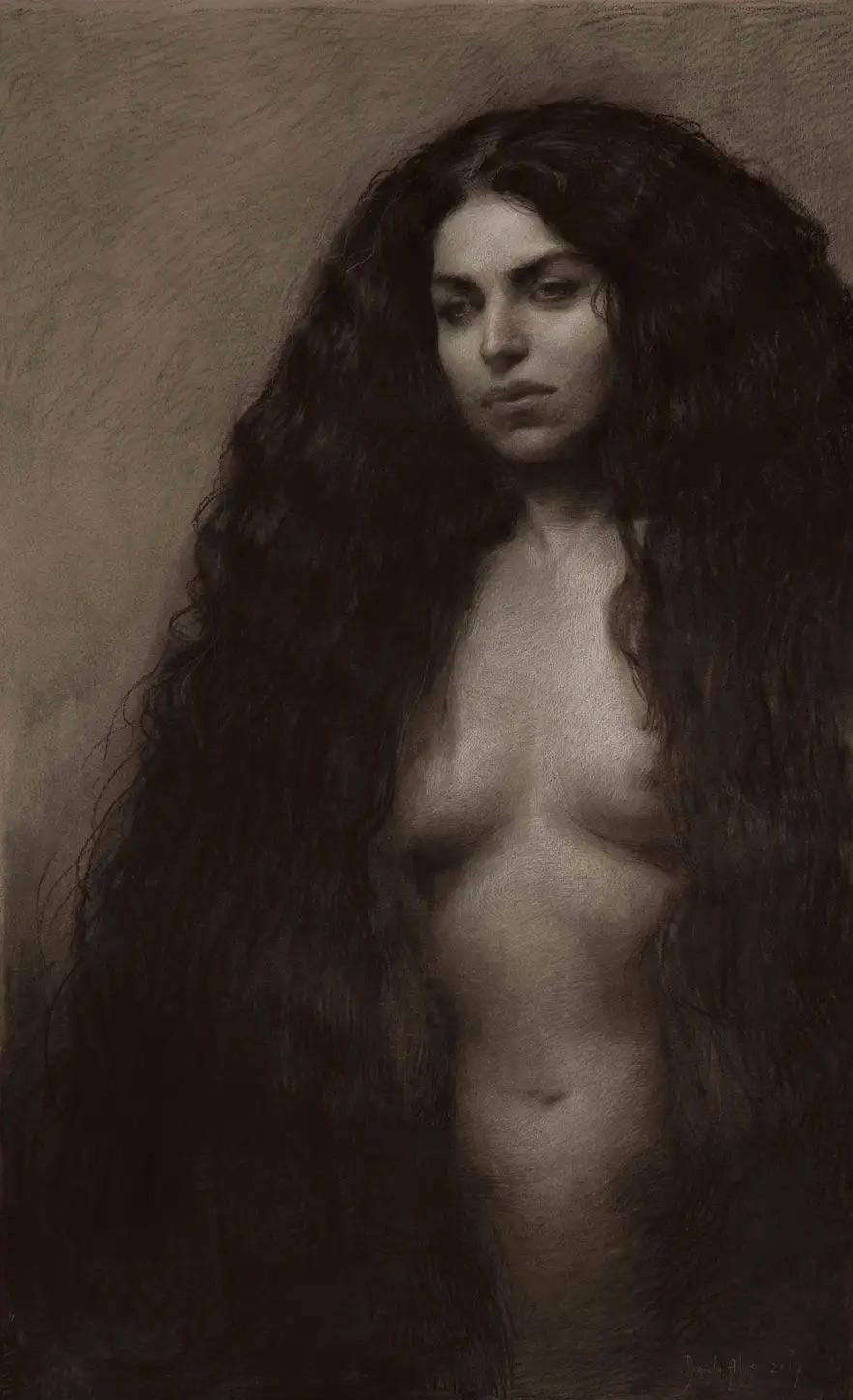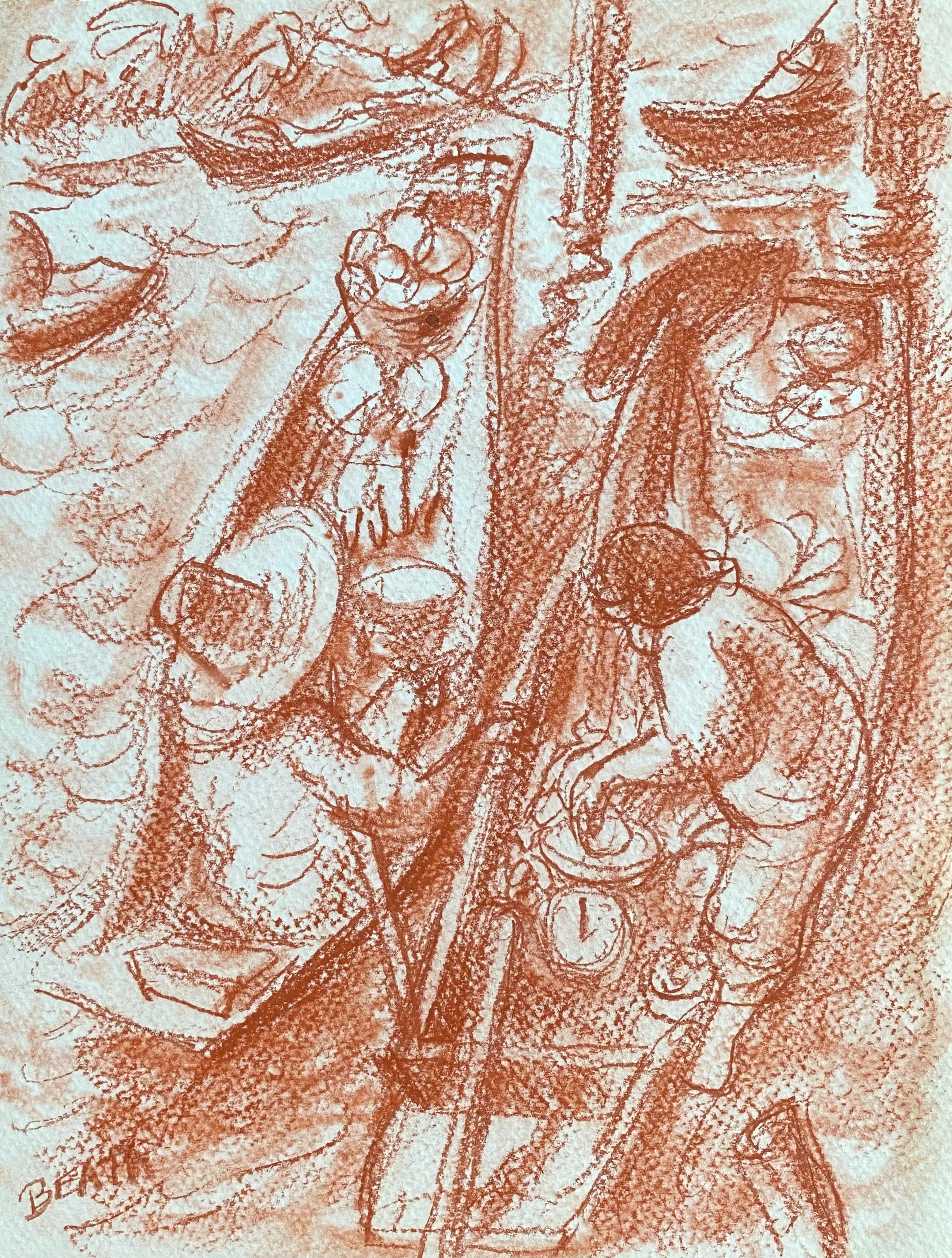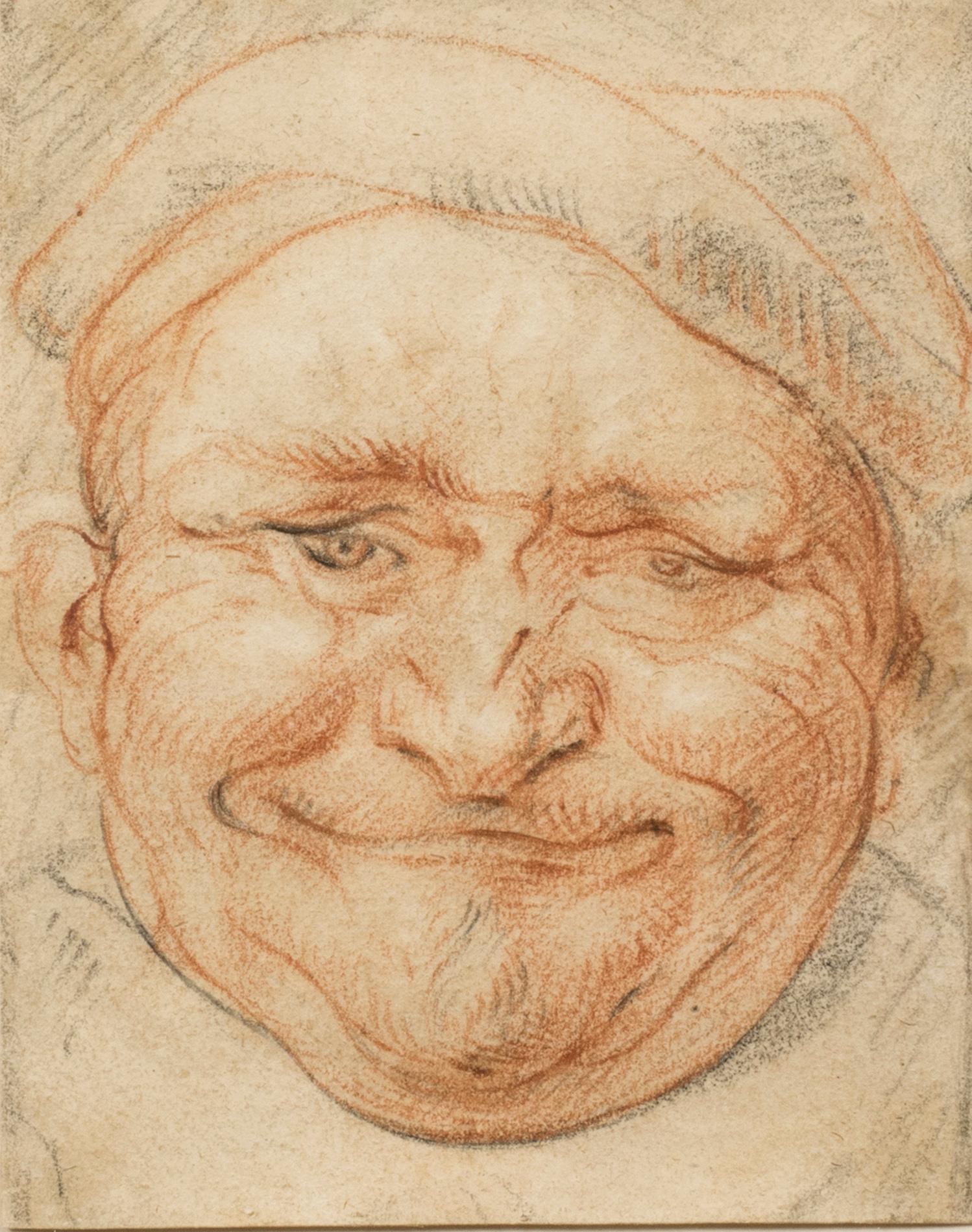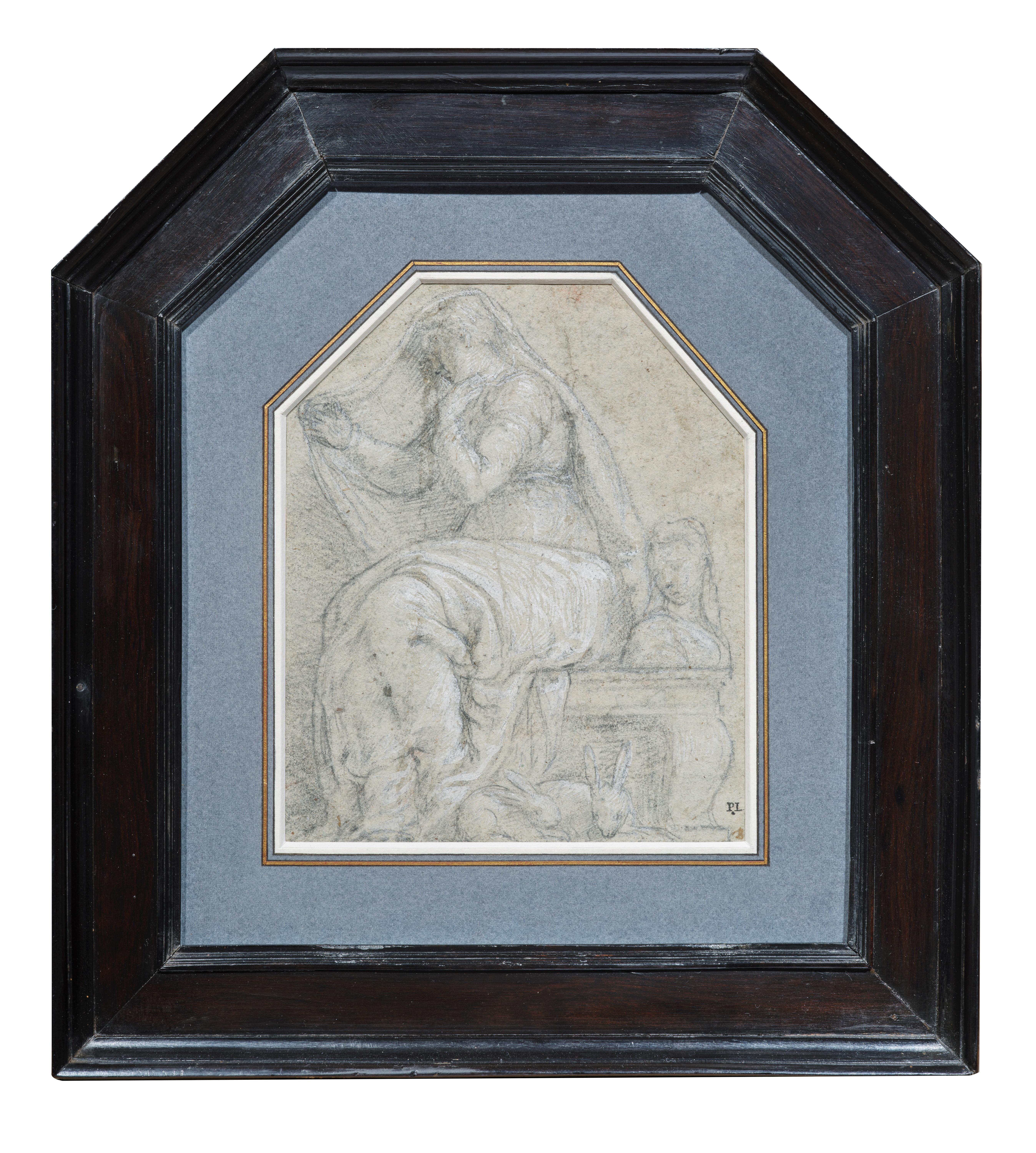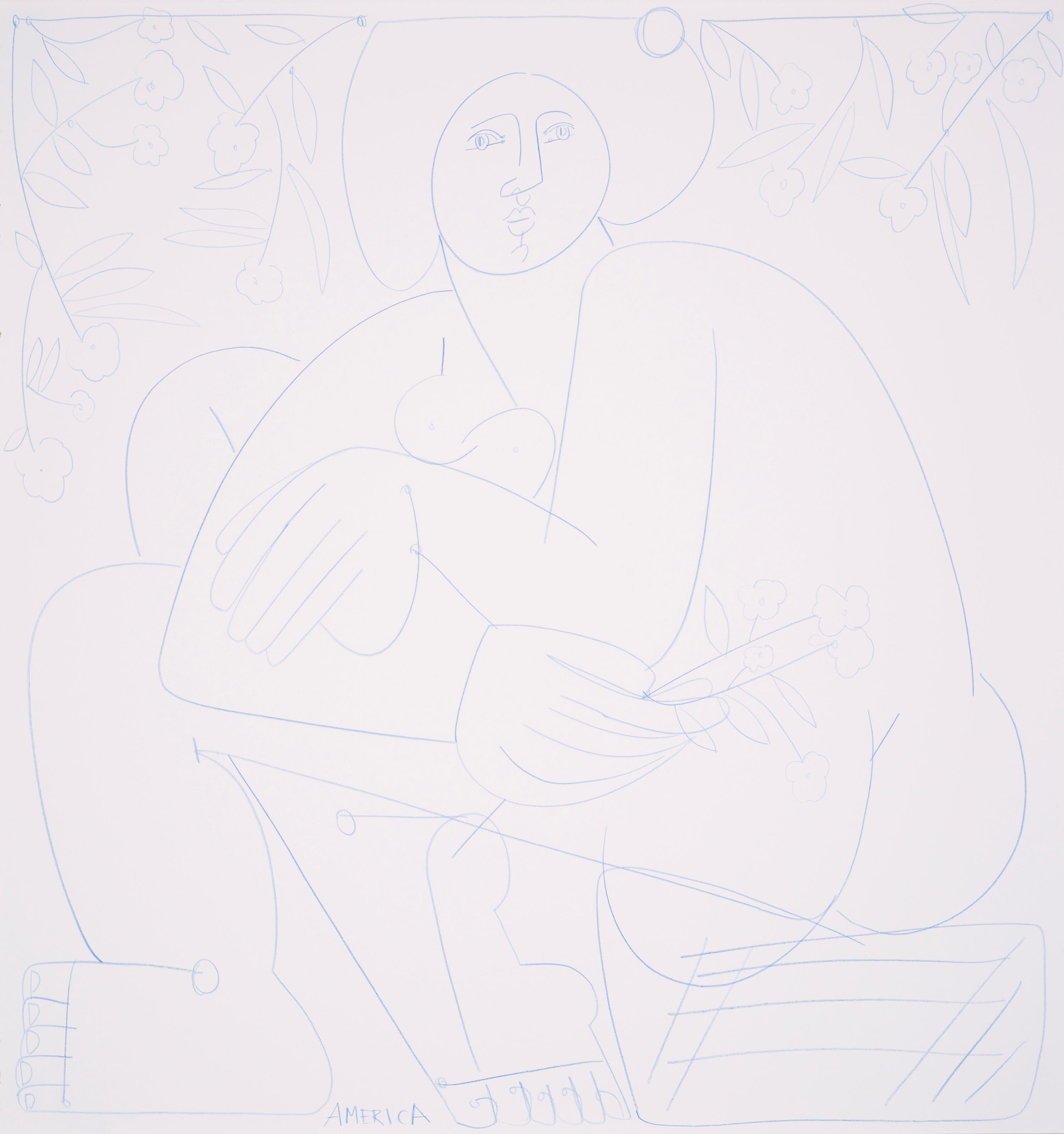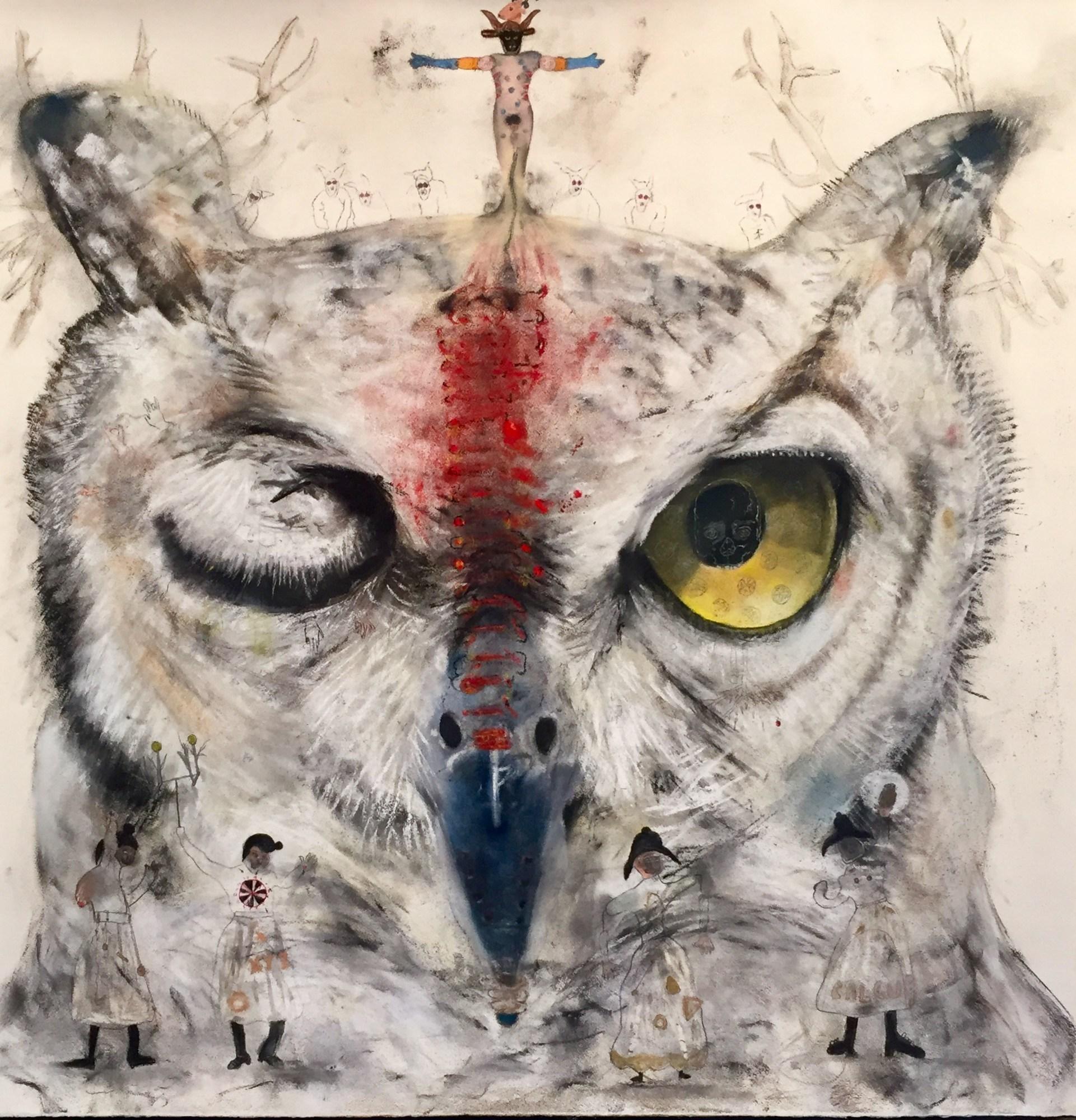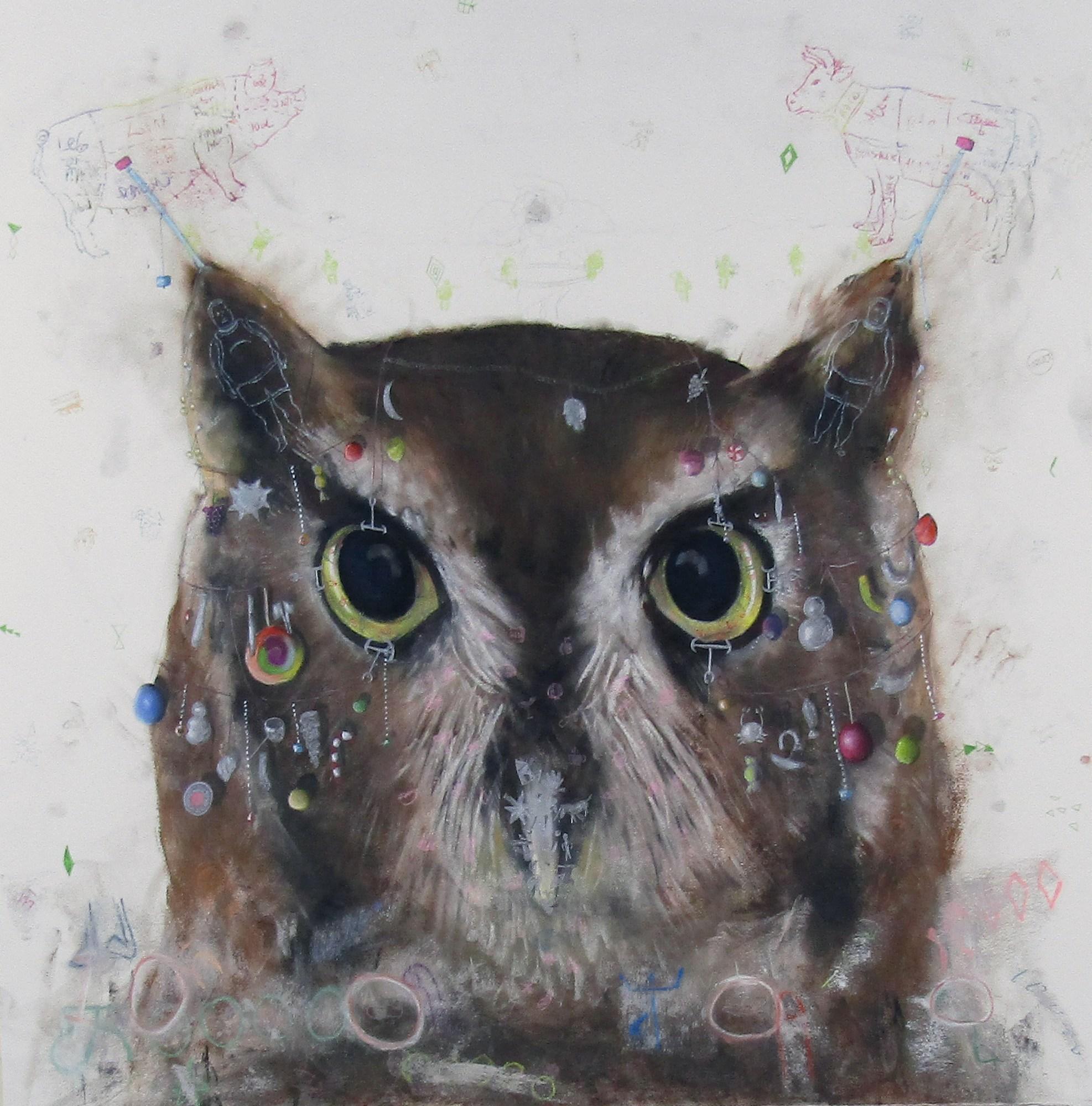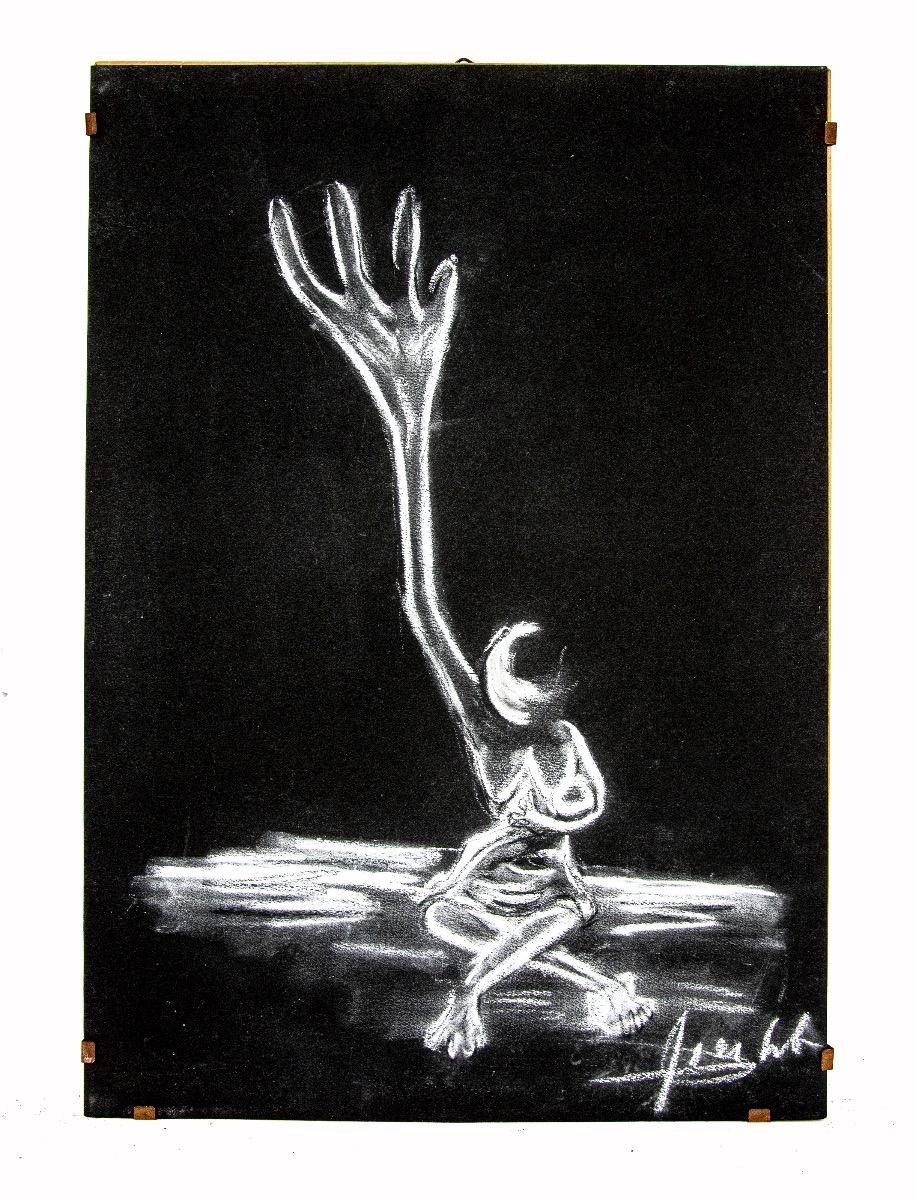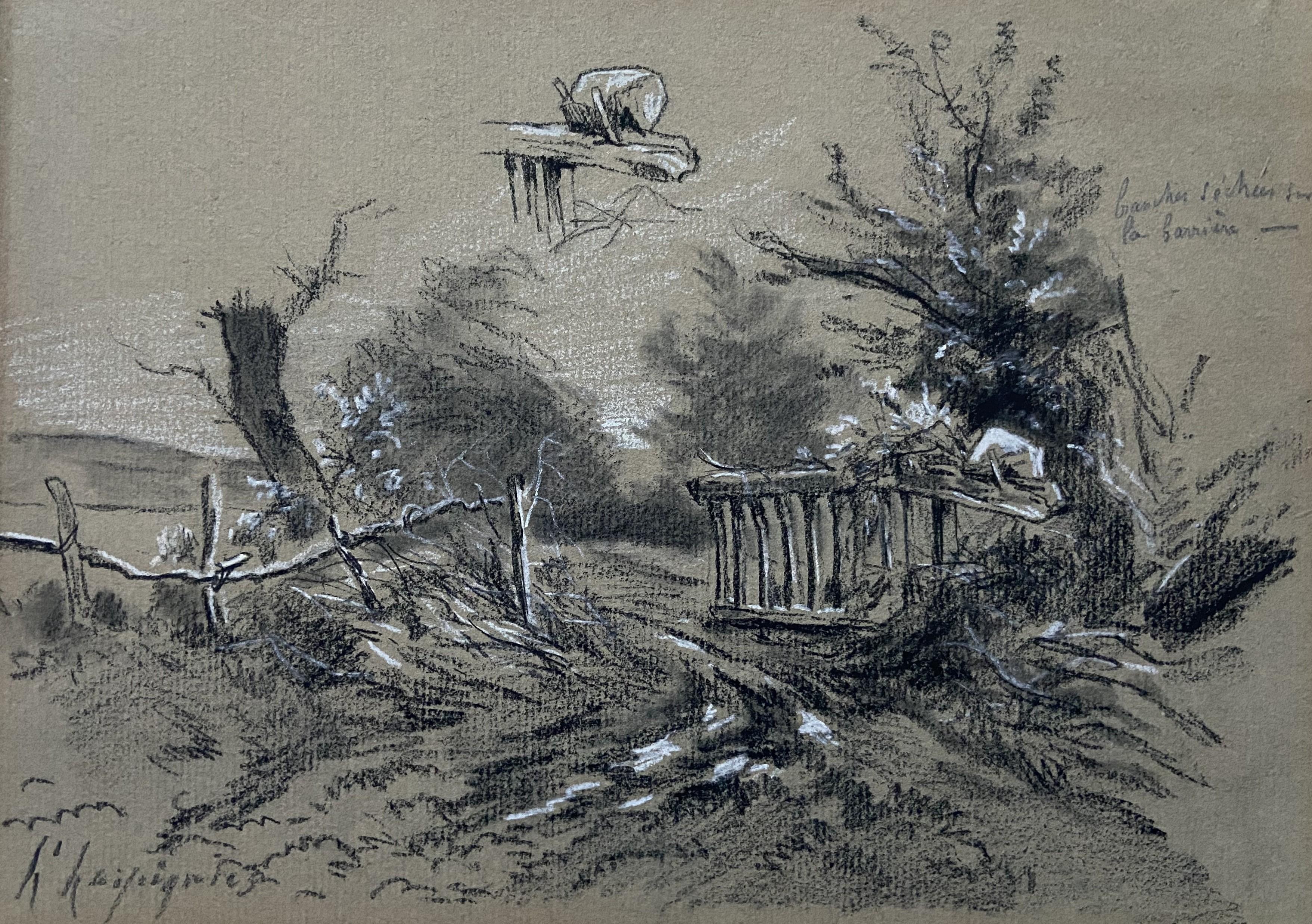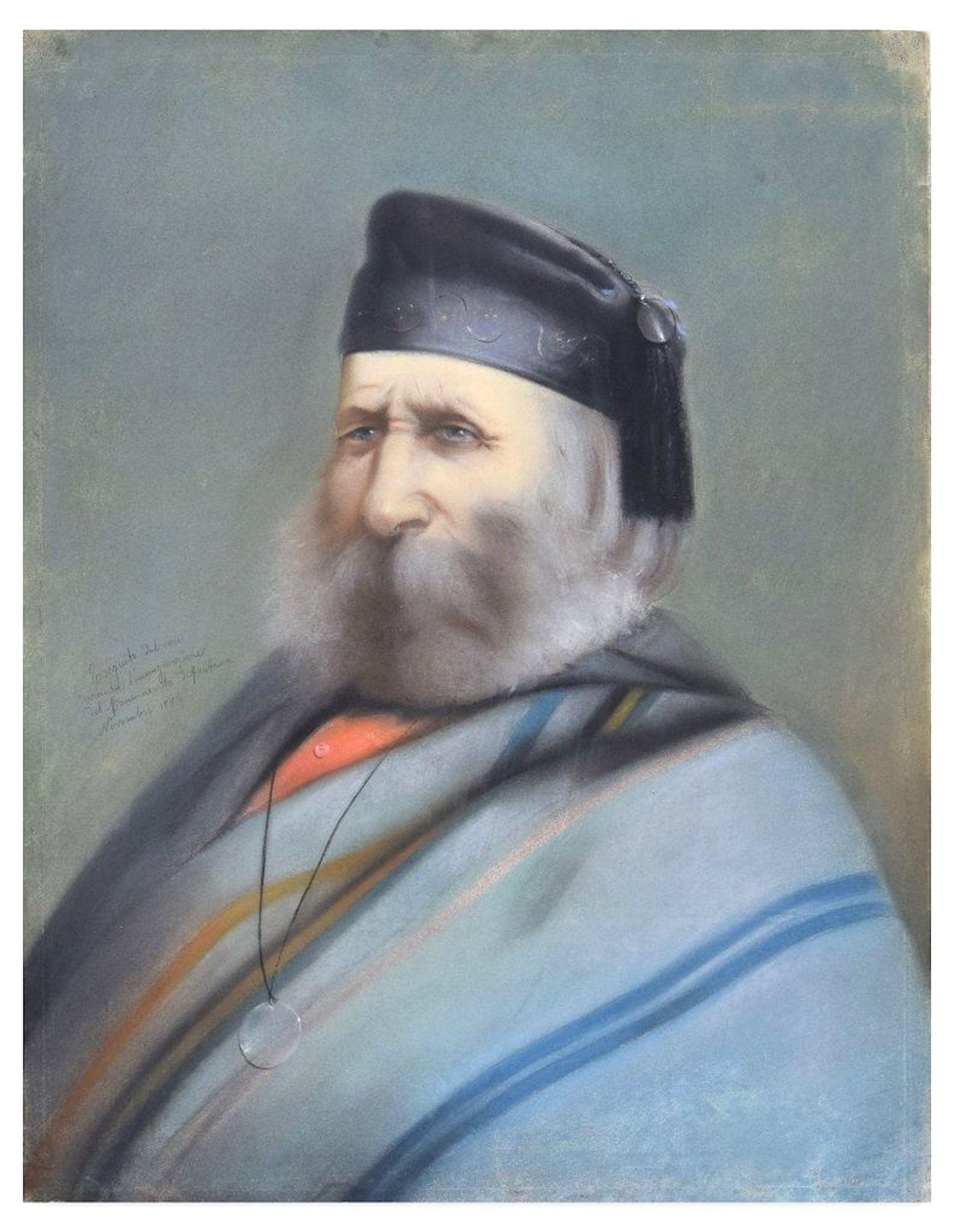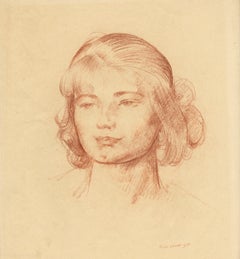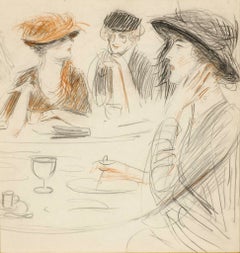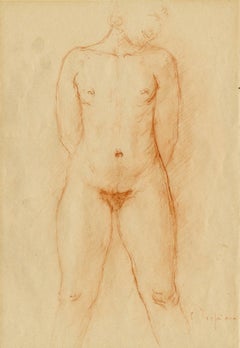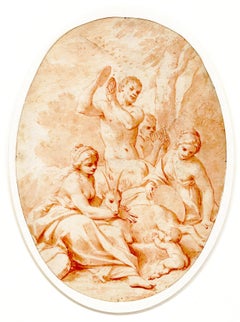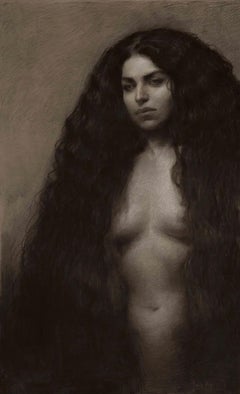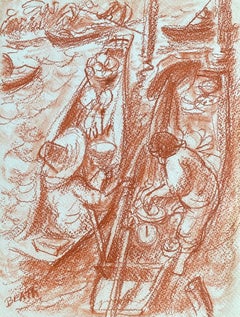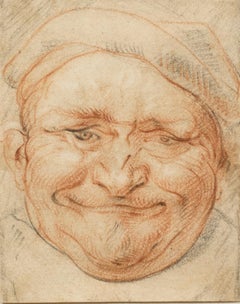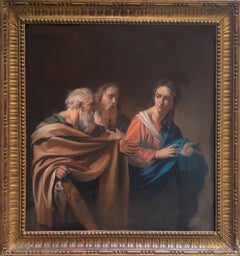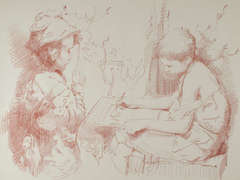
Untitled (Young Boy Drawing a Young Model)
Want more images or videos?
Request additional images or videos from the seller
1 of 5
Conger A. MetcalfUntitled (Young Boy Drawing a Young Model)c. 1940s
c. 1940s
About the Item
- Creator:Conger A. Metcalf (1914 - 1998, American)
- Creation Year:c. 1940s
- Dimensions:Height: 18.5 in (46.99 cm)Width: 24.25 in (61.6 cm)
- Medium:
- Period:
- Condition:
- Gallery Location:Fairlawn, OH
- Reference Number:Seller: FA91631stDibs: LU140120058
About the Seller
5.0
Recognized Seller
These prestigious sellers are industry leaders and represent the highest echelon for item quality and design.
Platinum Seller
Premium sellers with a 4.7+ rating and 24-hour response times
Established in 1978
1stDibs seller since 2013
788 sales on 1stDibs
Associations
International Fine Print Dealers Association
Authenticity Guarantee
In the unlikely event there’s an issue with an item’s authenticity, contact us within 1 year for a full refund. DetailsMoney-Back Guarantee
If your item is not as described, is damaged in transit, or does not arrive, contact us within 7 days for a full refund. Details24-Hour Cancellation
You have a 24-hour grace period in which to reconsider your purchase, with no questions asked.Vetted Professional Sellers
Our world-class sellers must adhere to strict standards for service and quality, maintaining the integrity of our listings.Price-Match Guarantee
If you find that a seller listed the same item for a lower price elsewhere, we’ll match it.Trusted Global Delivery
Our best-in-class carrier network provides specialized shipping options worldwide, including custom delivery.More From This Seller
View AllHead of a Woman (Margaret)
By Leon Kroll
Located in Fairlawn, OH
Head of a Woman (Margaret)
conte on wove paper, 1925
Signed and dated lower right
Annotated "Margaret" in ink verso
A portrait of Margaret Cassidy Manship ( d. 2012), daughter in law...
Category
1920s Ashcan School Figurative Drawings and Watercolors
Materials
Conté
Tea at the Ritz, New York
By Paul César Helleu
Located in Fairlawn, OH
Tea at the Ritz, New York
Colored chalk, 1912
Signed with the estate stamp verso. (see photo)
Authenticated by the artist's daughter, Mme Paulette Johnston.
Image size: 10 5/8 x 10 1...
Category
1920s Art Nouveau Drawings and Watercolor Paintings
Materials
Chalk
Nu (Standing Female Nude)
By Charles Despiau
Located in Fairlawn, OH
Nu (Standing Female Nude)
Red chalk on wove paper, c. 1925
Signed lower right by the artist, see photo
Condition: Excellent
Image/Sheet size: 12 1/8 x 8 5/16 inches
Note:
Despiau ...
Category
1920s French School Nude Drawings and Watercolors
Materials
Chalk
The Infant Jupiter Nursing from the She-Goat Amaltheia (The Birth of Jupiter)
By Luigi Quaini
Located in Fairlawn, OH
The Infant Jupiter Nursing from the She-Goat Amaltheia
(The Birth of Jupiter)
Red chalk and wash on off-white paper, c. 1700
Unsigned
Attribuuted to Quaini by Dwight Miller, the sch...
Category
18th Century and Earlier Baroque Figurative Drawings and Watercolors
Materials
Chalk
Read the Signs #25
By Darius Steward
Located in Fairlawn, OH
Read the Signs #25
Watercolor on Yupo paper, 2013
signed lower right: Darius Steward
Series: Read the Signs
Depicts Gwen, the artist's sister
An early work b...
Category
2010s Contemporary Figurative Drawings and Watercolors
Materials
Watercolor
Woman on a Patio
By Karl Albert Buehr
Located in Fairlawn, OH
Woman on a Patio
Pastel on paper, c. 1915
Unsigned
Provenance: Gift of the artist to his wife, Mary Hess Buehr
By decent to the artist's niece, daughter of Will Hess
David Saltzman
Robert Henry Adams Fine Art
Thomas French Fine Art
Ronald C. Sloter, Columbus, Ohio
Columbus College of Art and Design (de-accessed)
Exhibited at Robert Henry Adams Fine Art, 1994, the first exhibition at the North Franklin Street Gallery.
One of the early Chicago artists to adopt Impressionism, Karl Buehr became a figure and landscape painter. As a figure painter, his specialty became "gorgeously colored images of young women on porches overlooking brilliant summertime gardens." (Kennedy 98) His later work often showed a female figure with serious expression engaging the viewer with a direct stare. In his landscapes, he was noted for his strong coloration. In a December 1896 student exhibition at the Art Institute, a reviewer for the "Chicago Times Herald" described Buehr's landscapes as "blithe and joyous" with "country roads brilliant in sunlight . . . fields rich in summer verdure, under soft skies painted in a high, musical key." (Gerdts 68)
Buehr was born as one of seven sons to a prosperous German family who immigrated to America and settled in Chicago in 1869. He was first exposed to his signature style of Impressionism in 1888 when he enrolled in night classes at the Art Institute while working in the shipping department of a lithographic firm near the Institute. He remained a student there until 1897 and was recognized in a "Chicago Times Herald" editorial of June 13, 1897 as one of the Institute's most outstanding pupils.
The next year, his art career was temporarily put on hold when he briefly enlisted with the U.S. Army in the Spanish American War. In 1899, he resumed his art studies, this time with Frank Duveneck. He exhibited a painting at the Paris Salon of 1900. In 1905, thanks to a wealthy Chicago patron, Buehr and his family moved to France. They spent the following year in Taormina, Sicily, and spent time in Venice as well. In Paris, Buehr studied at the Academy Julian with Raphael Collin for two years. Then he went to England, enrolling in the London Art School but had returned to Paris by 1908. During this time, he began painting at Giverny, the home of Impressionist leader Claude Monet (1840-1926, and by 1912, Buehr was listing that village as his home address. One of his good friends and associates at Giverny was Frederick Frieseke.
One of Buehr's paintings from that time, "News from Home", was exhibited in 1913 at the French Salon in Paris and at the annual exhibit of the Chicago Art Institute. It shows a woman in floral dress sitting on a porch with a background with potted flowers and lush greenery background. Of his painting done at Giverny, Buehr wrote in 1912 to William Macbeth of Macbeth Galleries in New York: "My figures painted in and around Giverny are costumed and in appropriate out door settings." (Gerdts 68)
In 1914, he returned to the United States and took a teaching position in Chicago at the Art Institute, which he held for the remainder of his life. He was married to Mary Hess, a painter of miniatures and decorative works.
In 1928-29, he was a guest artist at Stanford University.
Courtesy, AskArt
“Karl Albert Buehr (1866–1952) was a painter born in Germany.
Buehr was born in Feuerbach - near Stuttgart. He was the son of Frederick Buehr and Henrietta Doh (Dohna?). He moved to Chicago with his parents and siblings in the 1880s. In Chicago, young Karl worked at various jobs until he was employed by a lithograph company near the Art Institute of Chicago. Introduced to art at work, Karl paid regular visits to the Art Institute, where he found part-time employment, enabling him to enroll in night classes. Later, working at the Institute as a night watchman, he had a unique opportunity to study the masters and actually posted sketchings that blended in favorably with student's work. Having studied under John H. Vanderpoel, Buehr graduated with honors, while his work aroused such admiration that he was offered a teaching post there, which he maintained for many years thereafter. He graduated from the Art Inst. of Chicago and served in the IL Cav in the Spanish–American War. Mary Hess became Karl's wife—she was a student of his and an accomplished artist in her own right. In 1922, he was elected into the National Academy of Design as an Associate member.
Art Studies in Europe
In 1904, Buehr received a bronze medal at the St. Louis Universal Exposition, then, in 1905, Buehr and his family moved to France, thanks to a wealthy Chicago patron, and they spent the following year in Taormina, Sicily, where the artist painted local subjects, executing both genre subjects and landscapes as well as time in Venice. Buehr spent at least some time in Paris, where he worked with Raphaël Collin at the Académie Julian.
Giverny and American Impressionism
Prior to this time, Buehr had developed a quasi-impressionistic style, but after 1909, when he began spending summers near Monet in Giverny, his work became decidedly characteristic of that plein-air style but he began focusing on female subjects posed out-of-doors. He remained for some time in Giverny, and here he became well-acquainted with other well known expatriate America impressionists such as Richard Miller, Theodore Earl Butler, Frederick Frieseke, and Lawton Parker. It seems likely that Buehr met Monet, since his own daughter Kathleen and Monet’s granddaughter, Lili Butler, were playmates, according to George Buehr, the painter’s son. His other daughter Lydia died before adulthood due to diabetes. He returned to Chicago at the onset of World War I and taught at The Art Inst for many years. One of his noted pupils at the Art Institute was Archibald Motley...
Category
1910s Abstract Impressionist Figurative Drawings and Watercolors
Materials
Pastel
You May Also Like
Scilla, 21-st Century Italian Charcoal Drawing of a nude woman by Daniela Astone
By Daniela Astone
Located in Nuenen, Noord Brabant
This Charcoal drawing is made on toned paper with charcoal and chalk.
The drawing is framed in a wooden gold frame with passe partout behind Clarity museum glass.
The Italian artist Daniela Astone...
Category
2010s Contemporary Nude Drawings and Watercolors
Materials
Paper, Chalk, Charcoal
“Floating Market”
Located in Southampton, NY
Here for your consideration is an original drawing done with conte crayon with hints of watercolor of a floating market place by the French artist, Rob...
Category
1950s Post-Impressionist Figurative Drawings and Watercolors
Materials
Conté, Oil Crayon, Archival Paper
$960 Sale Price
20% Off
Head of a Cheerful Man Wearing a Cap
Located in New York, NY
Watermark: the arms of Amsterdam
Provenance:
Christie’s, Amsterdam, 1 December 1986, lot 46; where acquired by:
Private Collection, New York
Literature:
Roger Adolf d’Hulst, “Jordaens Drawings: Supplement II,” Master Drawings, vol. 28, no. 2 (1990), pp. 153-156, no. A237a, fig. 17.
Matías Díaz Padrón, Jacob Jordaens...
Category
17th Century Baroque Portrait Drawings and Watercolors
Materials
Paper, Chalk
The Callings of Saints Peter and Andrew
Located in London, GB
The Callings of Saints Peter and Andrew
Robert Edge Pine
1730-1788
Chalk on paper
Image size: 15 1/2 x 17 inches (39.5 x 43 cm)
Original frame
Here in Pine’s picture displays an ac...
Category
18th Century English School Figurative Drawings and Watercolors
Materials
Paper, Chalk
Allegory of Chastity, a drawing attributed to G. Porta with great provenance
Located in PARIS, FR
This magnificent drawing from the Venetian Renaissance intrigues us in many ways. It depicts an allegorical composition whose meaning partly escapes us: a veiled figure seated on a stone bench (which we have identified as Chastity), seems to be turning away from a woman's bust beside her, below which are two rabbits, a traditional allegory of fertility, but also sometimes of lust.
This drawing, executed on blue paper, undoubtedly belongs to the Venetian Renaissance. The inscriptions on the back of the old mounting board indicate the various attributions considered by its last owner, the British painter and art historian Sir Lawrence Gowing. We have retained the attribution to Giuseppe Porta proposed by art historian John Arthur Gere as the most relevant.
We were incredibly fortunate to find a hexagonal frame of a very similar format for this drawing, the upper corners of which were formerly cut (irregularly). This 17th-century Dutch frame comes from an aristocratic collection in Lombardy, and creates a kind of fascinating chase around this Venetian drawing...
Category
16th Century Figurative Drawings and Watercolors
Materials
Chalk
Woman Sits and Looks About_America Martin_Blue Chalk on Paper_Figurative
By America Martin
Located in 326 N Coast Hwy. | Laguna Beach, CA
America Martin
"Woman Sits and Looks About"
Blue Chalk on Paper
30” x 28” Framed
AMERICA MARTIN is an internationally represented Colombian-American fine artist based in Los Angele...
Category
2010s Contemporary Figurative Drawings and Watercolors
Materials
Chalk
$4,000 Sale Price
20% Off
